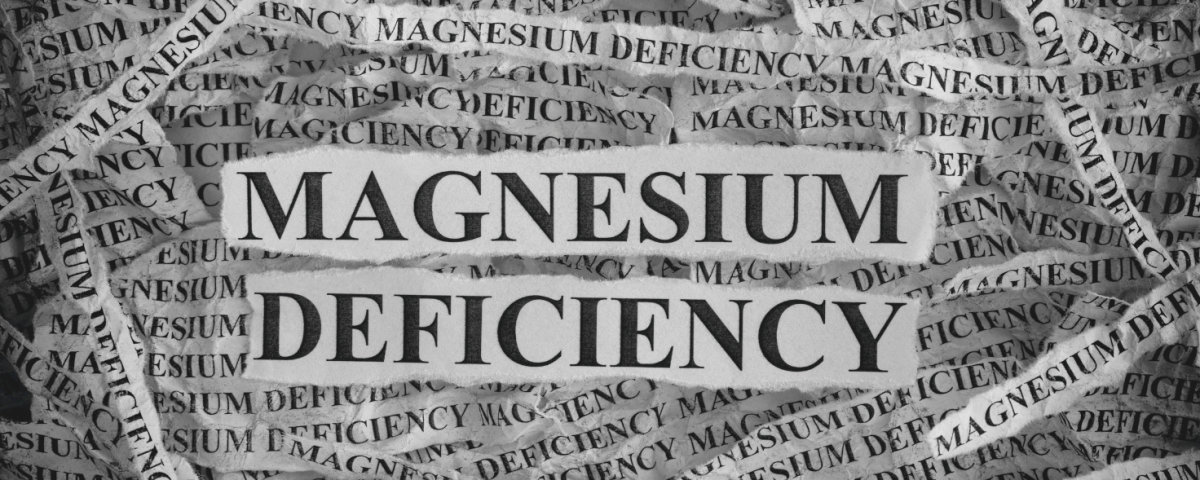
What happens if you do Intermittent Fasting everyday for 30 days
March 7, 2025
7 signs of Zinc Deficiency you should never ignore
April 10, 2025Magnesium is vital for human health.
It plays a key role in over 300 biochemical reactions in the body.
A deficiency in magnesium can lead to a range of serious health problems.
In this article, we’ll explore 7 key signs that may indicate your magnesium levels are too low.
Disclosure: Some of the links below are affiliate links. This means that, at zero cost to you, we will earn an affiliate commission if you click through the link and finalize a purchase.
1. Fatigue
When your body doesn’t get enough magnesium, you might feel tired all the time.
Magnesium helps your body turn food into energy, so without enough of it, your energy levels can drop.
In one study, researchers investigated whether patients with chronic fatigue syndrome CFS have lower red blood cell magnesium levels and if magnesium treatment could improve their wellbeing.
They first conducted a case-control study, finding that 20 CFS patients had significantly lower red cell magnesium concentrations than 20 matched healthy controls.
Then, in a randomized, placebo-controlled trial involving 32 CFS patients, 15 received weekly intramuscular magnesium injections for six weeks while 17 received a placebo.
Among those treated with magnesium, 12 reported improvements in energy, mood, and pain with 7 experiencing a marked boost in energy compared to only 3 patients in the placebo group.
2. Muscle Spasms and Cramps
Magnesium helps your muscles relax after they contract. If you’re deficient in magnesium, your muscles might contract but struggle to relax, causing painful spasms and cramps.
This can be quite uncomfortable and can interfere with daily activities.
3. Loss of appetite
Magnesium plays an essential role in keeping your digestive system running properly. When magnesium levels drop, digestion can slow down, which might make you feel less hungry.
Low magnesium can also affect hormones like leptin, which helps regulate your appetite. As a result, a deficiency in magnesium can lead to a loss of appetite.
4. Mental health issues
Magnesium plays a key role in regulating neurotransmitters, the chemical messengers that help your brain communicate and maintain emotional balance.
When magnesium levels are low, this delicate system can falter, leading to issues like anxiety, depression, or even difficulty concentrating.
Magnesium also helps manage your body’s stress response by keeping cortisol, your stress hormone, in check.
Without enough magnesium, stress can spiral, leaving you feeling mentally overwhelmed.
In one systematic review, researchers investigated the relationship between magnesium and mental disorders, with a focus on depressive symptoms.
They analyzed 32 articles, 18 of which addressed depressive disorders.
Among these studies, 7 found that lower plasma magnesium levels were significantly correlated with higher depression scores as measured by psychometric scales.
Additionally, 2 studies reported that magnesium supplementation on its own improved depressive symptoms, and another 2 showed similar benefits when magnesium was used in combination with antidepressants.
5. Nausea and vomiting
One of magnesium’s many roles is to support proper muscle and nerve function, including the muscles and nerves in your digestive tract.
Without enough magnesium, these functions can become disrupted, leading to nausea and vomiting as your body struggles to maintain normal digestive processes.
On top of that, magnesium helps regulate essential electrolytes like potassium and calcium, and an imbalance in these can further exacerbate nausea.
6. Abnormal Heart Rhythms
Magnesium plays a vital role in keeping your heart’s rhythm steady and reliable.
It works closely with other electrolytes, like potassium and calcium, to regulate the electrical signals that make your heart beat.
When magnesium levels drop too low, these signals can get disrupted, leading to abnormal heart rhythms, or arrhythmias.
This happens because magnesium helps maintain the balance of ions in heart cells, which is crucial for the coordinated contraction and relaxation of the heart muscle.
Without enough magnesium, the system becomes unbalanced, and the heart struggles to keep a stable rhythm.
7. Headaches
Magnesium is essential for maintaining smooth communication between nerves and blood vessels, especially in your brain.
When magnesium levels are low, it can cause blood vessels to constrict and lead to abnormal nerve signaling, both of which are known triggers for headaches.
Additionally, magnesium helps regulate key neurotransmitters like serotonin, which plays a role in pain perception.
Without enough magnesium, this balance is disrupted, making your brain more susceptible to headaches, including migraines.
How to combat Magnesium Deficiency
The fastest way to combat magnesium deficiency is to take a magnesium supplement. If you are interested we have put a link in the description.
As with any supplement, it’s crucial to consult with a healthcare professional before starting magnesium supplementation, especially if you have any underlying health conditions or are taking other medications.
They can help determine the appropriate dosage and ensure it’s safe for you.
The other way is to eat foods rich in magnesium, these include whole grains, nuts, seeds and legumes.


